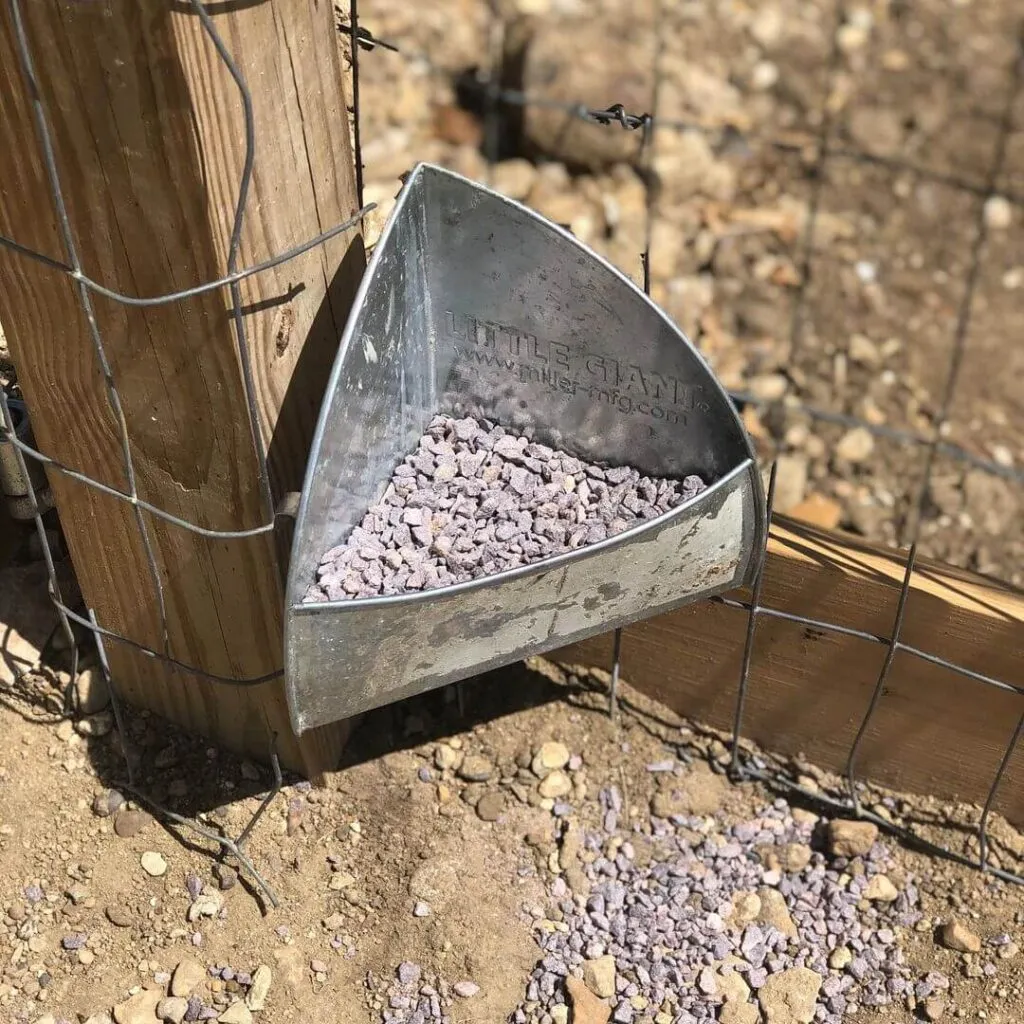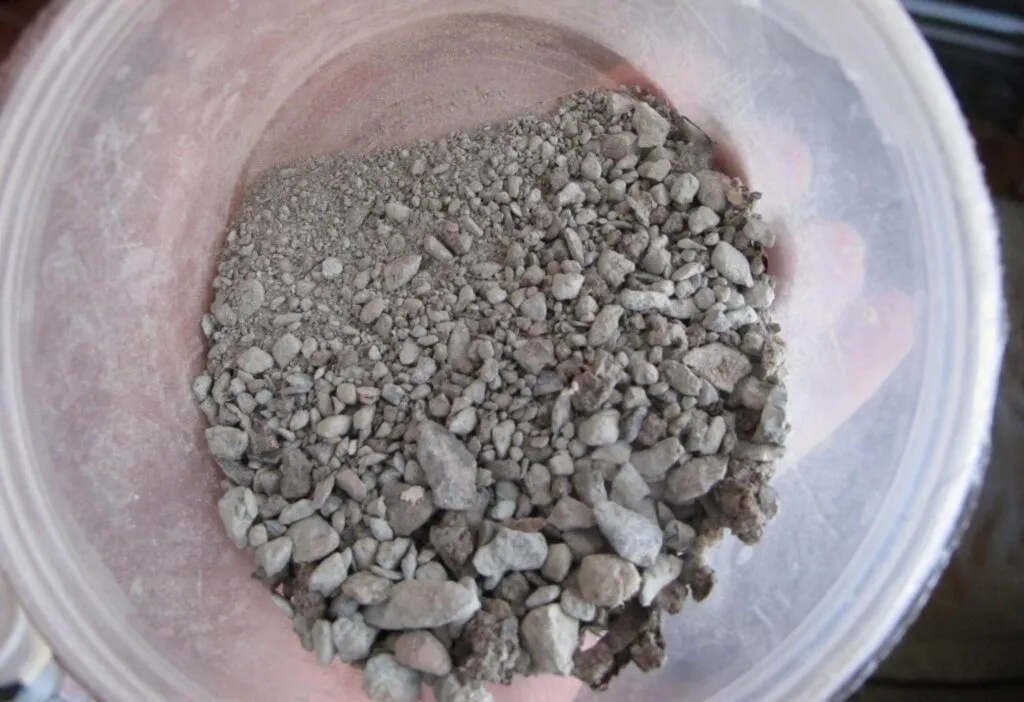There’s one essential component of your ducks’ diet that isn’t food: grit.
Grit consists of small rocks or stones. Ducks need grit to help them digest their food. Ducks don’t have teeth, but they do have a muscular stomach called the gizzard, which they periodically fill with small rocks. The motion of the gizzard combined with the friction of the rocks grinds their food.
So if you’ve ever seen ducks eating rocks, dirt, pebbles, gravel, or sand, they’re not technically eating it; they’re collecting teeth.
In this article, we are only talking about insoluble grit, the digestive aid. Soluble grit, a source of calcium, while frequently confused with grit, is a separate supplement and the two are not interchangeable.
Disclosure: This post contains affiliate links. As an Amazon Associate, I earn a commission if you purchase something through a link on this post, at no additional cost to you.
Do my ducks need grit?
In general, yes, your ducks need grit. Grit is an essential part of a duck’s diet. Without it, they can’t effectively digest most types of feed.
There are two circumstances where your ducks might not need you to provide supplementary grit, and even then, it may still be a good idea.
If your ducks are always indoors and eating exclusively commercial feed (whether pellets, mash, or crumbles), they don’t need grit. Commercial rations dissolve easily in the digestive tract. This primarily applies to ducklings in a brooder, since most ducks are at least partially outdoors or are fed treats and other supplementary foods.
If your ducks are free-range or have plentiful access to forage, they can probably find their own grit from the dirt. Most people who free-range their ducks don’t need to provide supplementary grit. Ducks will instinctively look for grit and eat what they find.
However, even if your ducks are free-range, providing grit is a good idea. They may not always be able to find sufficient natural grit, especially if their space is limited or if there is snow on the ground. Furthermore, some soils simply don’t provide the proper pebbles and rocks for grit, or not enough of them.
If your ducks are in a run, they need grit.
If your ducks are eating whole grains, scratch, bugs, grass, veggies, or any treats, they need grit (unless they’re also free-range and can find it themselves).
If in doubt, provide grit anyway. Grit is inexpensive, easy to provide, and a little goes a long way. It can’t hurt, and a lack of it could cause problems.

A free-choice grit feeder. Photo courtesy of Rebekah Veal.
Types of grit
There are two main types of grit: insoluble grit and soluble grit. As mentioned above, this article is only about insoluble grit (also called inert grit), which is indigestible and only used for grinding food. Soluble grit is digestible, is used as a source of calcium, and is not very effective at grinding food.
A wild or free-range duck’s choice of grit will include varied rocks, stones, and pebbles.
Storebought insoluble grit will usually comprise a single type of rock, but there are five options.
Crushed granite grit is the most common option. You won’t go wrong with it.
Flint grit is also common. It’s harder than granite (it ranks at 7 on the Mohs Hardness Scale, while granite ranks at 6-6.5), which means it should last longer in the gizzard.
Quartzite grit is less common, but also a good option. It too has a Mohs Hardness Scale ranking of 7.
Sandstone grit is sometimes sold, but it’s slightly softer and thus a little less effective.
Silica grit, mostly made of quartz, is another option, but be careful to buy a large enough grit size. You don’t want fine sand. Size #2 or larger should work.
All five options are fine, so which you choose is largely inconsequential. If you see something labeled “grit” that is not made up of one of these five materials, it’s probably soluble grit.
A more important factor is grain size or level of coarseness. Ducklings need finer grit than adult ducks, as they may not be able to consume larger pieces of rock. On the other hand, too-fine grit for adult ducks may be useless for grinding food or at least not last as long before grinding down.
For adult ducks, grit particles should measure approximately 1/8 to 1/4 of an inch across, or 3-6 millimeters.
Can you use oyster shell as grit?
Oyster shell is for calcium and is not the same as grit. It does take some time to dissolve and stays in the gizzard while it does so. Thus, some people think they’re killing two birds with one stone by offering oyster shell as a source of both calcium and grit. Unfortunately, oyster shell is not as effective as proper insoluble grit, since it dissolves and insoluble grit doesn’t, so it is not a recommended replacement for grit.
Also, oyster shell is not appropriate for ducklings or drakes. It’s only for laying ducks.
What about mixed grit?
If your flock contains laying female ducks, you will likely need to feed them both insoluble and soluble grit. Yes, it’s possible to mix them. The birds should still be able to pick out what they need. Some sources also sell “mixed grit” with the two types of grit already mixed.
Mixing the two won’t benefit your ducks, but it might be more convenient for you.
Cheat sheet
Here’s what type of grit you should buy, based on what kind of birds you’ll be providing it to:
| Bird | Product |
| Ducklings (1-6 weeks) | Chick grit |
| Growing ducks (6-18 weeks) | Grower grit or adult grit |
| Adult bantams | Chick or grower grit + soluble grit |
| Adult ducks | Adult chicken grit + soluble grit |
| Adult drakes only | Adult chicken grit |
View this post on Instagram
Grit for ducklings
Ducklings shouldn’t have free-choice access to grit during their first few days, as they may mistake it for food and eat too much of it (the same way they may try to eat some types of bedding at first).
You only need to give your ducklings grit once you start adding feeds to their diet other than their commercial feed.
If you do start giving your ducklings veggies or other foods before they’re a week old, mix a little grit in with their feed rather than offering it free-choice.
Never give oyster shell or any other soluble grit to ducklings. They do not need the extra calcium, and it is likely to be harmful for them. Avoid mixed grit, too, as it contains soluble grit.
Ducklings should be offered chick grit for their first eight weeks. At that point, they can be switched to adult chicken grit. Some companies also sell a “grower” grit to be fed to birds between eight weeks old and adulthood.
Homemade grit and grit substitutes
Want to “make” your own grit? It’s possible—but there are a few things to be careful of.
Sand?
People often wonder if they can just use sand. Yes, but only if it’s coarse enough. Kids’ play sand is useless and will just pass through your ducks. Masonry sand is also too fine.
Construction sand/builder’s sand, all-purpose sand, or creek/river sand should work as grit, especially for ducklings. They may still grind down faster than other types of grit, however.
Instead of buying a product labeled “chicken grit,” you can also buy crushed/decomposed granite from building supply stores.

Decomposed granite. Photo credit: “decomposed granite = stone dust” (CC BY 2.0) by bptakoma
Dirt?
If the dirt in your area contains plenty of rocks and pebbles of various sizes, it will likely be fine as grit. Some people dump small piles of dirt in their duckling brooders to provide them with grit.
But you can’t assume that any old dirt will provide sufficient quantities of grit.
Parakeet grit?
Parakeet grit isn’t ideal. Its particles are too small for adult ducks, with the possible exception of adult bantams.
For ducklings, the size is right, but the ingredients generally are not. Parakeet grit is often either pure oyster shell or contains a high level of oyster shell or other source of calcium, so it isn’t appropriate for ducklings.
If you can find parakeet grit without calcium, it will be fine for ducklings.
Crushed eggshells?
Eggshells provide calcium. If you want to make your own soluble grit, you can use eggshells. They do not work well as insoluble grit.
How to feed grit
There are two ways to feed grit: sprinkling it on top of feed and offering it free-choice in a separate container.
Sprinkling grit on top of your ducks’ feed is an option, but it’s not ideal because it will be more difficult for your ducks to take the amount they need. Any unneeded grit will be wasted, and it’s difficult to know how much your ducks need.
Giving your ducks constant free-choice access to a dedicated grit container (rabbit feeders make excellent grit hoppers) is less wasteful and will suit your ducks better.
Can ducks eat too much grit?
No. If they eat more grit than they need, they’ll just pass it. But they are very good at self-regulating their intake.
How much grit do ducks need?
Even though insoluble grit is indigestible, it will eventually wear down and become too fine, and then pass through, so ducks need frequent access to it in order to replace their gizzard’s grit supply.
How often ducks need grit and how much they eat depends on their diet, how much grit they’re finding on their own, and the hardness of the grit.
The American Pastured Poultry Association says layer hens eat 75-150 grams of grit per month.
Cluckin.net says chickens need 2.5-4 grams of grit per month.
Go figure.
I’ve also seen sources say 1/4 of a teaspoon per duck per day, one teaspoon per week, and 3 teaspoons of grit for every two pounds of feed.
But it doesn’t matter. Trying to mix grit in with your ducks’ feed isn’t the best idea. Don’t trust any numbers you might see online and don’t worry about trying to guess how much grit your ducks need.
Just provide a small container of grit. They’ll take what they need and you can refill it as necessary.
Leave a comment
Your email address will not be published.